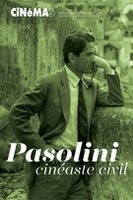
Cinemas
Scope & Guideline
Navigating the Complexities of Film and Culture
Introduction
Aims and Scopes
- Cultural and Historical Analysis of Cinema:
The journal emphasizes the examination of films within their cultural and historical frameworks, analyzing how cinema reflects and shapes societal narratives. - Interdisciplinary Approaches to Film Studies:
Cinemas promotes interdisciplinary methodologies, integrating perspectives from philosophy, sociology, ethics, and aesthetics to enrich film analysis. - Focus on Representation and Identity:
A consistent theme is the exploration of representation in film, including issues of gender, race, and sexuality, and how these elements influence audience perception and engagement. - Ethics and Aesthetics in Film:
The journal explores the ethical implications of cinematic narratives and aesthetics, encouraging discussions on how films can provoke moral and philosophical inquiries. - Innovative Film Techniques and Theories:
Cinemas also delves into the technical aspects of filmmaking, including the use of new technologies and innovative narrative structures, to understand their impact on storytelling.
Trending and Emerging
- Nostalgia and Memory in Cinema:
Recent publications reflect a significant focus on nostalgia and memory, exploring how films address historical trauma, collective memory, and personal nostalgia as a narrative device. - Queer Cinema and Representation:
There is an increasing emphasis on queer cinema and its representations, reflecting broader societal conversations about gender identity and sexual orientation, as well as the politics of visibility in film. - Ecological and Environmental Themes:
Emerging research addresses ecological concerns within cinema, focusing on how films depict environmental issues and the relationship between nature and technology, aligning with global awareness of climate change. - Digital Technologies and New Media:
The impact of digital technologies and new media on filmmaking and audience engagement is a growing area of interest, examining how innovations like virtual reality and mobile cinema transform cinematic experiences. - Global Cinema and Transnational Narratives:
There is a notable trend towards exploring global cinema and transnational narratives, highlighting how films from various cultures interact and inform each other, reflecting the complexities of globalization.
Declining or Waning
- Traditional Film Criticism:
There has been a noticeable decrease in papers focused on traditional film criticism, which often emphasized canonical texts and established theories, as newer interdisciplinary approaches gain traction. - Historical Film Genres:
Research centered on specific historical film genres, such as classic Hollywood or European art cinema, appears to be declining, possibly overshadowed by more contemporary and innovative film studies. - Linear Narrative Structures:
The exploration of linear narrative structures in film is less frequently addressed, as scholars increasingly focus on non-linear storytelling and experimental forms of narrative. - Mainstream Cinema Focus:
There is a reduction in analyses centered on mainstream commercial cinema, with more scholars gravitating towards independent, avant-garde, and global cinema, reflecting a broader interest in diverse cinematic voices. - Static Theoretical Frameworks:
Research employing static or singular theoretical frameworks is diminishing, indicating a shift towards more dynamic and hybrid approaches that combine various theories and methodologies.
Similar Journals
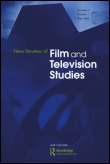
New Review of Film and Television Studies
Cultivating Knowledge in the Realm of Screen StudiesNew Review of Film and Television Studies, published by Routledge Journals, Taylor & Francis Ltd, stands as a vital platform for scholars and practitioners engaged in the dynamic fields of film and television studies within the United Kingdom. This journal, which has been in circulation since 2010 and will continue through 2024, provides a rigorous academic forum for contemporary research, critical analysis, and innovative discourse surrounding visual storytelling. With an impressive Scopus rank placing it in the 66th percentile for Visual Arts and Performing Arts, and a respectable Q2 categorization, the journal fosters an interdisciplinary approach, bridging communication and cultural studies. While the journal does not currently operate under an open access model, it remains an invaluable resource for researchers, students, and professionals aiming to understand and influence the evolving landscape of film and television in our digital age. As it navigates the intersection of media and society, New Review of Film and Television Studies is essential reading for those looking to advance their knowledge and contribute to the ongoing scholarly conversation.
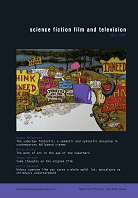
Science Fiction Film and Television
Innovative Perspectives on the Science Fiction GenreScience Fiction Film and Television, published by LIVERPOOL UNIV PRESS, is a leading academic journal that explores the rich intersection of science fiction with cinematic and television narratives. With an ISSN of 1754-3770 and E-ISSN 1754-3789, this journal provides a platform for critically engaging with both historical and contemporary works within the genre, offering insights into its cultural significance, aesthetic innovations, and societal impacts. As part of the communication and visual arts fields, it is recognized in the Scopus ranking, achieving an impressive percentile of 87th in Visual Arts and Performing Arts, and maintaining a respectable rank within communication studies. Since its inception in 2018, it aims to foster dialogues among scholars, professionals, and students, making substantial contributions to the understanding of science fiction as a vital cultural phenomenon. With access options that cater to a broad audience, Science Fiction Film and Television is essential reading for those interested in exploring the innovative potentials and narratives of science fiction across media.

Culture & History Digital Journal
Advancing Knowledge in Cultural Phenomena and Historical Narratives.Culture & History Digital Journal, published by CONSEJO SUPERIOR INVESTIGACIONES CIENTIFICAS-CSIC, is a distinguished Open Access journal dedicated to advancing the study of cultural phenomena and historical narratives. Recognized for its scholarly contributions, this journal boasts an impressive ranking within the Q2 category of both Cultural Studies and History for 2023, further supplemented by its notable standings in Scopus, where it ranks #533 out of 1760 in Arts and Humanities (History) and #544 out of 1304 in Social Sciences (Cultural Studies), reflecting its commitment to high-quality research dissemination. The journal has been embracing Open Access since 2012, making a wide array of interdisciplinary content freely available to researchers, professionals, and students worldwide. With a focus on promoting innovative scholarship and critical analysis within the digital humanities landscape, Culture & History Digital Journal serves as an essential platform for those engaged in the exploration of the interplay between culture and history in the contemporary context.

Atalante-Revista de Estudios Cinematograficos
Fostering Innovative Research in Cultural Studies.Atalante-Revista de Estudios Cinematograficos, an esteemed open-access journal published by ASOC CINEFORUM L ATALANTE, has been a vital platform for scholarly discourse in the fields of Cultural Studies, History, and Visual Arts and Performing Arts since its inception in 2011. With a commitment to promoting innovative research and critical analyses, Atalante has earned a commendable reputation, achieving Q2 status in Cultural Studies and both Q1 rankings in History and Visual Arts for 2023. Based in Valencia, Spain, this journal not only serves as a conduit for scholars to disseminate findings but also provides unrestricted access to its contents since 2013, fostering a more informed and engaged academic community. With its diverse range of topics and the ability to access high-quality research at no cost, Atalante plays a crucial role in advancing the understanding of cinematic studies and its contextual significance in broader cultural narratives.

SIGHT AND SOUND
Decoding the Language of Visual StorytellingSIGHT AND SOUND is a prestigious journal published by the British Film Institute, dedicated to the exploration of cinema and its cultural significance. With an ISSN of 0037-4806 and an E-ISSN matching the same, this journal has been a critical platform for film studies since its inception, contributing valuable insights to the realms of visual arts and performing arts. Despite its discontinuation in the Scopus database post-2021, SIGHT AND SOUND commands respect within its field, currently holding a Q3 rank among Visual Arts and Performing Arts journals. Operating from 21 Stephen Street, London W1P 1PL, England, it serves as a vital resource for researchers, professionals, and students looking to deepen their understanding of film theory, critique, and history. While access to its articles is not open, the journal continues to influence the discourse in film studies, making it a significant asset in academic and professional circles.

MILLENNIUM FILM JOURNAL
Diving Deep into the Complexities of Visual Storytelling.MILLENNIUM FILM JOURNAL, published by MILLENNIUM FILM WORKSHOP INC, stands as a pivotal platform for exploration and discourse within the realm of film studies. With its ISSN 1064-5586, the journal has been noteworthy in delineating the complexities of visual arts and performing arts, contributing significantly to academic scholarship between the years 2009 to 2016, and in 2018. Though its coverage has been discontinued in Scopus, the journal has attained a respectable position within its category, ranking #320 out of 502 in the Arts and Humanities field. Researchers, professionals, and students alike are invited to engage with interdisciplinary discussions that illuminate the cultural and theoretical dimensions of cinema. While currently not offering open access options, the journal continues to serve as a vital resource for those deeply invested in the study of film, making it a respected voice in visual arts and performance research.

Think-Philosophy for Everyone
Innovating Philosophical Discourse for EveryoneThink-Philosophy for Everyone, published by Cambridge University Press, is a dynamic platform that encourages interdisciplinary dialogue in the realm of philosophy, catering to both seasoned scholars and enthusiastic students alike. With an ISSN of 1477-1756 and an E-ISSN of 1755-1196, this journal encompasses a broad scope from 2019 to 2024, promoting accessible and innovative discussions on philosophical themes relevant to contemporary society. Positioned in the 38th percentile among its peers in the Arts and Humanities category, it ranks #496 out of 806 in Scopus, highlighting its significance within the academic community. Although currently not an Open Access journal, it remains a valuable resource for various academic inquiries. By fostering critical thinking and diverse perspectives, Think-Philosophy for Everyone stands as an essential contribution to the field, inviting researchers and practitioners to explore, challenge, and expand their philosophical horizons.

CINEFORUM
Exploring the Intersection of Cinema and PerformanceCINEFORUM is a distinguished journal published by the FEDERAZIONE ITALIANA CINEFORUM, focusing on the vibrant field of Visual Arts and Performing Arts. With an ISSN of 0009-7039, this journal serves as a significant platform for researchers and practitioners interested in critical discussions and analyses pertaining to cinema and performance. Although coverage in Scopus discontinued in 2020, CINEFORUM has established its standing with a category ranking in the Q4 quartile for Visual Arts, reflecting its niche yet passionate readership in the arts community. Based in Bergamo, Italy, the journal aims to foster a deeper understanding of cinematic and performative texts, offering insights and scholarly contributions that enhance the discourse within these artistic domains. Catering to an audience that includes researchers, professionals, and students, CINEFORUM remains an essential resource for those looking to explore the intersection of theory and practice in cinema and performing arts.
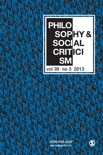
PHILOSOPHY & SOCIAL CRITICISM
Bridging Thought and Society.PHILOSOPHY & SOCIAL CRITICISM, published by SAGE Publications Inc, stands as a pivotal platform for high-quality scholarly discourse, bridging the realms of philosophy and social theory. Since its inception in 1973, this esteemed journal has evolved to encompass provocative analyses and critical examinations of social issues, thereby playing an influential role in shaping contemporary philosophical thought. With an impressive Q1 ranking in the field of philosophy and a Q2 ranking in sociology and political science for 2023, it attracts contributions from leading academics and thought leaders. The journal, which spans topics of significance from the philosophies of ethics to the socio-political landscapes of modernity, provides crucial insights that inform both research and practical applications. Although currently not an open access journal, it offers robust access options through institutional subscriptions, ensuring its wide availability within the academic community. By engaging with the interdisciplinary dialogue fostered in its pages, researchers, professionals, and students alike can benefit from the rich academic exchange that PHILOSOPHY & SOCIAL CRITICISM facilitates, solidifying its importance in the scholarly landscape.
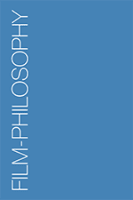
Film-Philosophy
Illuminating Philosophical Insights Through FilmFilm-Philosophy is an esteemed academic journal published by Edinburgh University Press, specializing in the intersection of film studies and philosophical discourse. Since its launch in 1998, this Open Access journal has provided a platform for scholarly debates and innovative research, allowing for free and unrestricted access to its content, which has significantly contributed to the global dialogue on visual culture. With a commendable impact illustrated by its Q1 ranking in Visual Arts and Performing Arts and Q2 in Philosophy, the journal sits within the top quartile of its field. Operating from the United Kingdom, Film-Philosophy is committed to fostering a multidisciplinary approach, inviting contributions from researchers, professionals, and students alike. By engaging with critical theories and the aesthetics of cinema, the journal stands as a vital resource for understanding the philosophical implications of film and its cultural significance.